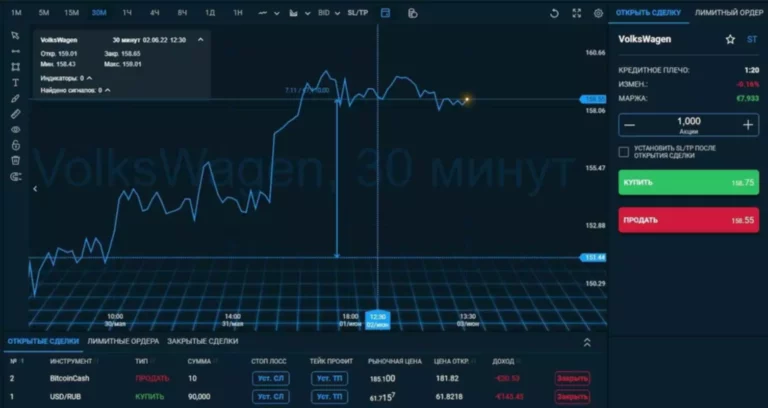Indeed, the very nature of trading demands lively day by day involvement, with merchants continually immersed out there trading or investing in stocks‘s pulse. Through diversification and basic evaluation, buyers slowly build sustainable wealth while weathering the inevitable ups and downs of the market. This steady, enduring perspective enables investors to capitalise on the facility of compounding and benefit from the general development of the financial system or the companies by which they make investments. Due to its short-term nature, trading is generally perceived to be a riskier endeavour within the monetary panorama. Meet Navsheen, a seasoned monetary professional with a strong foundation in enterprise economics and a proven observe document in wealth administration. Holding a postgraduate diploma in Business Economics, she has honed their abilities by way of 4 years of experience in financial planning and portfolio management.
What Are The Important Thing Variations Between Investing And Trading?
- If you may be more risk-averse and don’t wish to be actively engaged available within the market, then investing might be better suited to you.
- Investing requires careful research, evaluation of monetary statements, analysis of market tendencies and understanding of risk and return trade-offs.
- An investor who bought £1,000 worth AMZN shares in 2003, would have it grown into £5,280 in 20 years, excluding any dividend funds.
- Your private circumstances will determine how much tax you pay on any funding returns.
- Investors maintain property for years and even decades, focusing on intrinsic worth and progress potential.
In this section, we’ll go through numerous features of trading that can assist you see the thrilling world of monetary https://www.xcritical.in/ markets. Trading is a more active and short-term approach to the markets compared to investing. Traders purchase and sell assets like stocks, commodities, or currencies to revenue from short-term worth fluctuations. They make profits in considered one of two ways – They purchase at a low value and promote at a excessive price, or by quick selling, which means in falling markets they promote at greater costs and repurchase at decrease prices. As the name suggests, lively investing is an concerned approach to the management of an investment portfolio.
Number Of Monetary Instruments
Diversified funds, in the meantime, spread your money throughout hundreds of corporations. This helps easy out any dips individual companies may expertise by supplementing their efficiency Yield Farming with different corporations’ stronger returns. When it involves building wealth by way of the stock market, buying and selling and investing take vastly completely different approaches, each with its personal targets, time commitments, dangers, and benefits. Let’s break down the contrasts between the two to grasp which might fit your financial type.
Tips On How To Handle Danger As A Trader Or Investor
Share prices normally fluctuate and this offers traders the opportunity to choose on the right time to make profit. You can commerce shares, indices, forex, etfs, bonds, commodities, and IPOs. Investing includes purchasing assets with the intention of holding them for the long run to construct wealth over time, while trading focuses on short-term features through frequent buying and promoting of property. Investors typically purpose for regular, long-term returns, whereas traders seek to capitalize on market fluctuations within the brief run. Traders aim to outperform average market returns by capitalizing on mispriced shares or market inefficiencies. Their methods typically hinge on analyzing technical patterns, market circumstances, or even company fundamentals.
The length of the funding course of will depend on your individual circumstances. Some individuals invest to achieve long-term financial independence and retire early, whereas others make investments to fund medium-term goals corresponding to profession breaks or weddings. Regardless of the goal, investing usually includes following a strategy with an funding time horizon of no less than one year.
Passive investors, on the other hand, emphasize simplicity and long-term development. They concentrate on creating a low-cost, broadly diversified portfolio that requires minimal ongoing management. Dividends are sometimes reinvested, permitting their investments to compound over time. This method aligns with long-term goals, such as saving for retirement, with the primary goal of matching market returns quite than outpacing them.
But shopping for and promoting investments turns into riskier the shorter your timeline is and the extra you focus your money into just a handful of holdings, 2 challenges traders typically face. The inventory market has historically recovered from each downturn it is experienced—but it hasn’t always done so rapidly or predictably. Recoveries can take years, which means traders who purchase shares of stocks whose values fall may not have the time to wait out a rebound.
Traders usually employ technical analysis tools, corresponding to moving averages and stochastic oscillators, to find high-probability trading setups. Suppose we have to summarize the whole discussion on buying and selling vs. investing. In that case, traders are the ones that reap the advantages of the market circumstances to enter or exit their positions on shares over a short period, taking smaller but much more returns. In distinction, investors strive for bigger returns over a long-drawn-out interval by shopping for and holding stocks. The main difference between investing and trading is the length of time for which a place may usually be held. Investing can contain strategies with much longer time horizons, whereas traders goal to make income from short-term price strikes.
Either means, having a stable investing strategy is significant in understanding what to allocate to your funding account. However, there is a potential for quick and substantial income, as merchants adept at capitalizing on short-term market opportunities can notice returns within a comparatively transient timeframe. The flexibility to adapt swiftly to altering market circumstances is another asset, and this enables traders to seize alternatives throughout numerous scenarios. On the opposite hand, investing is a long-term strategy centered on producing wealth via capital appreciation and revenue. In this part, we’ll analyze the contrasting options of buying and selling and investing, offering insights to assist you decide which strategy aligns better along with your monetary objectives.
If a contract is within the cash by $1,000, the profitable trader will get exactly that money, successfully taking it from the losing trader. So buyers are more probably to favor a passive approach to the markets, whether or not they spend cash on particular person corporations or funds. Trading is well-suited to individuals who’ve a great grasp of the markets and how they work. Traders are additionally extra risk-tolerant, so they received’t get distracted when there are some dips available in the market or in the occasion that they find yourself taking a loss. People who’re extra risk-averse and wish to preserve their capital do better with investing. Trading shares is rather more time-consuming and frantic in comparability with making investments.
Both trading and investing offer unique alternatives for wealth creation, and neither is inherently superior to the other. The selection finally is dependent upon your private preferences, financial aims, and life-style. If you might be still not sure, consider beginning with a mix of both strategies. You can trade a portion of your portfolio whereas investing the remaining for long-term growth. As you gain experience and confidence, you can adjust your strategy to find the steadiness that works finest. The buying and selling vs investing debate has been a long-standing one within the financial markets.
Examples are hypothetical, and we encourage you to seek customized recommendation from certified professionals relating to specific investment issues. Our estimates are based mostly on past market performance, and previous efficiency just isn’t a assure of future efficiency. But there is a drawback if you resolve to maintain the inventory and don’t want to hand over on it. So right here, the dealer has turn out to be an alleged investor who does not have enough information on the corporate to decide on holding the inventory or letting it go.
Although these terms are generally used interchangeably, trading and investing are not the identical thing. Trading includes shopping for and promoting property (such as stocks) for short-term features. Traders primarily focus on share prices as they make their decisions.
Ally Invest doesn’t present tax recommendation and does not characterize in any manner that the outcomes described herein will end in any particular tax consequence. Your alternative is dependent upon your investing style, goals, threat urge for food and timeline. You might intuitively already know your preferences, notably when contemplating threat and whether or not you need to invest over hours or years. Traders, on the contrary, may have profitably shorted the inventory of the financial institution on numerous occasions.
Understanding the nuances of both strategies is a vital part of ensuring you strategy the markets in a way that suits you. This article defines investing and trading and focuses on the similarities and differences between the 2 approaches. Discover the monetary markets with eToro and begin buying and selling or investing right now. Retail investors who want to develop a passive income without devoting a lot time to the analysis ought to make investments their money.






